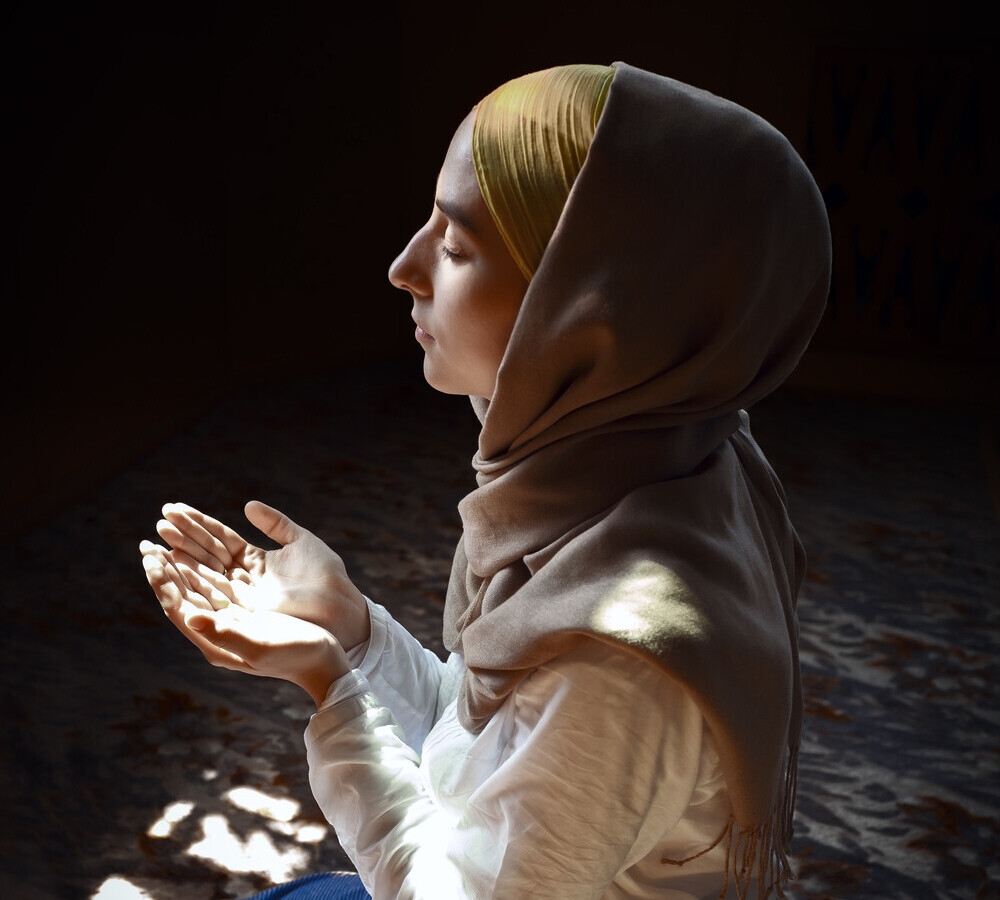Understanding the Five Pillars of Islam: A Beginner-Friendly Guide
Looking for a practical guide to understanding the Five Pillars of Islam?
This is one of the most important topics for new Muslims, reverts, or anyone exploring Islam for beginners. The Five Pillars aren’t just religious rituals—they’re the foundation for a meaningful, faith-driven life.
Let’s walk through these Five Pillars step by step with clear explanations and beginner-friendly tips.

🧭 Table of Contents
- What Are the Five Pillars of Islam?
- Shahada: Testimony of Faith
- Salah: The Five Daily Prayers
- Zakat: Charity in Islam Explained
- Sawm: Fasting During Ramadan
- Hajj: Pilgrimage to Mecca
- Quranic Support for the Five Pillars
- Practical Tips for Reverts and New Muslims
- Frequently Asked Questions
- Final Thoughts
What Are the Five Pillars of Islam?
The Five Pillars are the core Islamic practices every Muslim strives to follow. They help structure daily life and connect believers to Allah. These practices build personal faith, develop character, and strengthen the Muslim community (ummah).
If you’ve searched “What are the Five Pillars of Islam explained?” or “how to practice Islam as a beginner”—you’re in the right place.
1. Shahada: Testimony of Faith
Arabic: الشهادة
Meaning of Shahada in Islam
The Shahada is the first and most essential pillar. It means declaring:
“There is no god but Allah, and Muhammad is the Messenger of Allah.”
It’s more than a sentence—it’s the foundation of Islamic belief. Saying the Shahada with sincere belief is how someone becomes a Muslim.
For new Muslims or reverts, this moment is life-changing. It’s often done in a mosque, sometimes with witnesses, but it can also be said privately with intention.
🟢 Tip for beginners: Start learning what the Shahada means in your language. Let it shape your worldview as you grow in your journey of faith.
2. Salah: The Five Daily Prayers
Arabic: الصلاة
How to perform Salah step by step
Salah (prayer) is performed five times a day:
- Fajr (dawn)
- Dhuhr (midday)
- Asr (afternoon)
- Maghrib (sunset)
- Isha (night)
Each prayer involves specific movements and recitation—usually in Arabic. Don’t worry if it seems overwhelming. Start with learning one prayer and build up gradually.
🔹 Why it matters: Salah trains discipline, strengthens your connection to Allah, and brings peace to your day.
🟢 Beginner tip: Use Salah apps, printable guides, or mosque classes designed for reverts. Consistency matters more than perfection.
3. Zakat: Charity in Islam Explained
Arabic: الزكاة
Islamic charity practices for beginners
Zakat is the practice of giving 2.5% of your surplus wealth to those in need. It’s a powerful act of purification—for both your wealth and your heart.
- It’s only required if your wealth reaches a certain amount (nisab).
- If you’re not yet earning much, you’re not expected to give.
🔹 Why it matters: Zakat supports the ummah, reduces inequality, and strengthens social bonds.
🟢 Beginner tip: Even if you’re not eligible to give yet, learn how Zakat works and set the intention to practice it when you’re able.
4. Sawm: Fasting During Ramadan
Arabic: الصوم
Why do Muslims fast in Ramadan
Sawm means fasting during the month of Ramadan, from dawn to sunset.
You avoid:
- Food and drink
- Intimate relations
- Negative behavior (anger, gossip, etc.)
🔹 Why it matters: Fasting develops self-control, empathy, and spiritual awareness.
🟢 Beginner tip: If it’s your first Ramadan, take it slow. Focus on intention and learning. You are exempt if you’re ill, pregnant, or very new to the faith.
5. Hajj: Pilgrimage to Mecca
Arabic: الحج
What is Hajj in Islam
Hajj is a once-in-a-lifetime pilgrimage to Mecca, required only if you’re physically and financially able.
It happens during Dhul Hijjah (Islamic month 12) and involves a series of rituals that connect Muslims to the legacy of Prophet Ibrahim (Abraham).
🔹 Why it matters: Hajj symbolizes equality, submission to Allah, and spiritual rebirth.
🟢 Beginner tip: Learn about Hajj early on—even if you can’t go yet. The intention to go is part of the journey.

Quranic Support for the Five Pillars
Each pillar is supported by verses in the Quran:
- Shahada: Surah Al Ikhlas, Surah Muhammad (47:19)
- Salah: Surah Al-Baqarah (2:43), (2:238)
- Zakat: Surah At-Tawbah (9:60)
- Sawm: Surah Al-Baqarah (2:183)
- Hajj: Surah Al-Hajj (22), Surah Al-Baqarah (2:196)
While the Quran doesn’t list them all together, Prophet Muhammad ﷺ grouped them in authentic hadith.
Practical Tips for Reverts and New Muslims
Starting your Islamic journey can feel overwhelming. Here’s how to simplify it:
✅ Learn the Shahada and understand its meaning
✅ Begin with 1 daily prayer and build gradually
✅ Focus on intention during Ramadan, even if you fast only partially
✅ Don’t stress about Zakat unless your income qualifies
✅ Keep learning about Hajj—even if it’s years away

Frequently Asked Questions
Q: Can I start with just a few pillars?
Yes, many new Muslims begin with Shahada and Salah. Growth is gradual.
Q: What are beginner resources for Salah?
Use apps like Muslim Pro, join mosque classes, or watch YouTube tutorials for “Salah for beginners”.
Q: How can I build a support network?
Look for revert groups on WhatsApp, Telegram, Reddit, or in your local mosque.
Final Thoughts: Your Path, Your Pace
Whether you’re searching “Islamic practices for reverts” or just exploring the basics, remember this:
Islam isn’t a race. It’s a lifelong journey of learning and connection with Allah.
Every sincere effort brings reward. The Five Pillars form a strong, beautiful foundation for that journey—one step at a time.


This is such a well-organized and approachable guide for anyone curious about the Five Pillars of Islam, whether they’re new Muslims, considering reverting, or just exploring the faith. I appreciate how the article doesn’t just list the practices but really explains their deeper purpose—like how Salah builds discipline and serenity, or how Zakat purifies both wealth and the heart.
I also like that it emphasizes progress over perfection. It can be daunting for beginners to learn prayers in Arabic or understand complex rulings about Zakat and fasting, but the practical tips (like starting with one prayer or learning about Hajj gradually) make it feel much more manageable and encouraging.
Overall, this guide strikes a great balance between clarity and respect for the significance of these pillars. It shows that the Five Pillars aren’t merely rituals—they’re a framework for living with intention, compassion, and connection to Allah.
Thank you for your kind and thoughtful words. It truly means a lot to hear that the guide resonated with you in both its clarity and spirit. One of the main goals in writing was to support those who are curious or newly exploring Islam (like myself) to make the path feel welcoming rather than overwhelming.
You’ve beautifully captured the heart of the Five Pillars: they are not just obligations, but tools for inner growth, discipline, and connection with Allah. I’m especially glad you mentioned the idea of progress over perfection, that’s such an important reminder for all of us. Islam encourages sincere effort, and Allah looks at the intention behind each step we take, no matter how small.
Learning prayer, understanding rulings, and gradually building confidence in practice is a journey, and it’s perfectly okay to grow at your own pace. What matters most is the sincerity in your heart and the desire to draw closer to your Creator.
Thank you again for your encouragement and for engaging with the content so thoughtfully. May your journey—wherever it may lead—be filled with peace, understanding, and light. Please don’t hesitate to reach out if you ever have questions or thoughts to share. ????
Warmly,
Peace be upon you (Assalamu Alaikum)
This is a well-written and respectful introduction to the Five Pillars of Islam, and I appreciate the clarity and compassion shown toward those who are new to the faith. It’s always valuable to learn about what others believe, especially when it’s shared in a thoughtful, welcoming way like this.
As a Christian, I found it particularly interesting to see the emphasis on faith expressed through action—something we also deeply value. The idea of structuring life around regular prayer, generosity, fasting, and intentional pilgrimage echoes the Christian call to “present your bodies as a living sacrifice” (Romans 12:1). While our beliefs about salvation and the nature of God differ significantly—especially regarding who Jesus is—I do see how these practices are meant to draw the Muslim believer closer to God.
One question I had while reading: From a Christian perspective, we believe that salvation comes by grace through faith in Jesus Christ alone (Ephesians 2:8–9), not by works, though good works naturally follow true faith. How does Islam view the assurance of salvation? Is it something that can be known, or is it always uncertain until the final judgment?
Thank you again for sharing this guide. It’s always good to dialogue with understanding and respect, even when our worldviews differ.
Thank you so much for your thoughtful and gracious comment. I truly appreciate the spirit of mutual respect and curiosity you’ve shown—it’s the kind of sincere exchange that builds bridges of understanding between people of different faiths.
It’s beautiful to see the parallels you’ve highlighted, especially how both Islam and Christianity emphasize faith expressed through action. That verse from Romans is powerful, and it resonates deeply with the Islamic idea that our bodies, time, and resources are a trust from God—meant to be used in His service with sincerity and devotion.
Regarding your question about salvation in Islam—this is a very meaningful and important topic. In Islam, salvation is rooted in a balance of faith (iman), good deeds (‘amal salih), and most importantly, the mercy of God (Ar-Rahman, Ar-Raheem). Muslims are taught to believe in God (Allah), follow the guidance revealed through the prophets (especially through the final prophet, Muhammad, peace be upon him), and strive to live a life of righteousness.
While Muslims do not believe salvation is guaranteed based solely on works, they also do not believe that faith alone—without action—fulfills the full purpose of belief. Ultimately, no one enters Paradise(Jannah جنة) except by the mercy of Allah, as even the Prophet Muhammad (peace be upon him) said that his own salvation depends on God’s mercy.
So while Muslims hope and pray for Paradise, and trust in God’s justice and mercy, there is a humility that remains—acknowledging that only God knows our hearts and our ultimate fate. It’s a hopeful striving, not despairing, and never presumptuous.
Thank you again for your kindness and for engaging with the topic so thoughtfully. Conversations like these are a blessing, and I welcome any further questions or reflections you might have!
Warm regards,
Peace be upon you (Assalamu Alaikum)